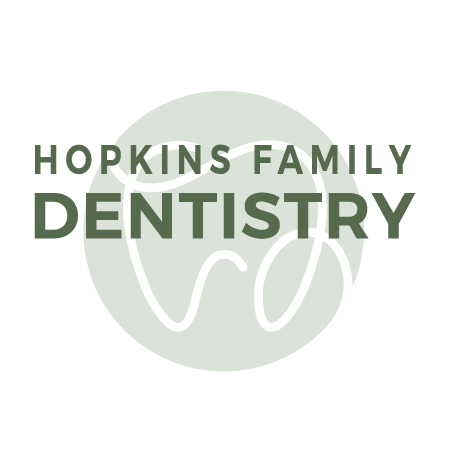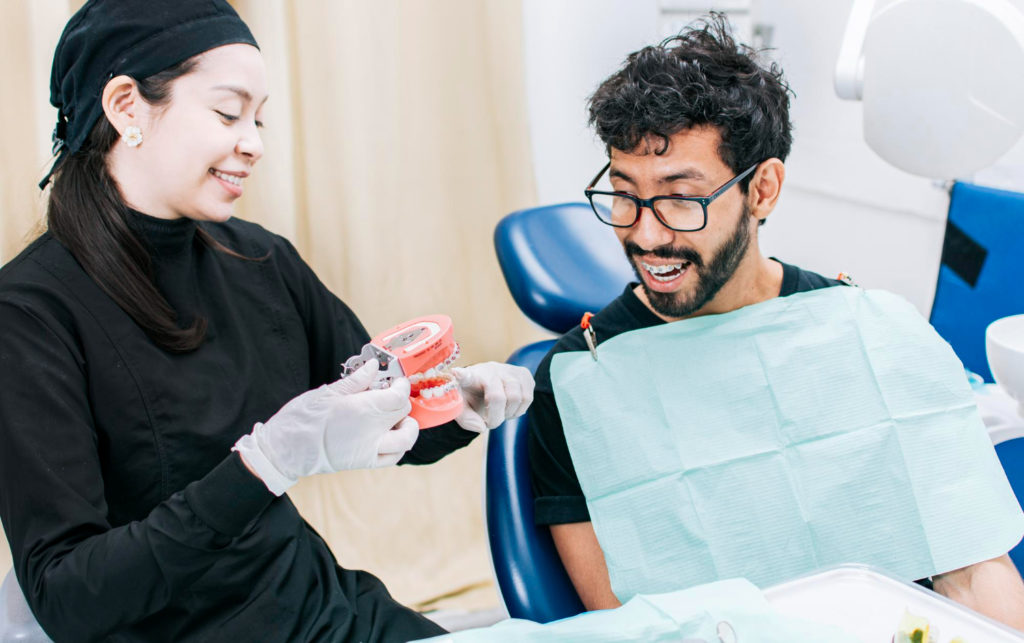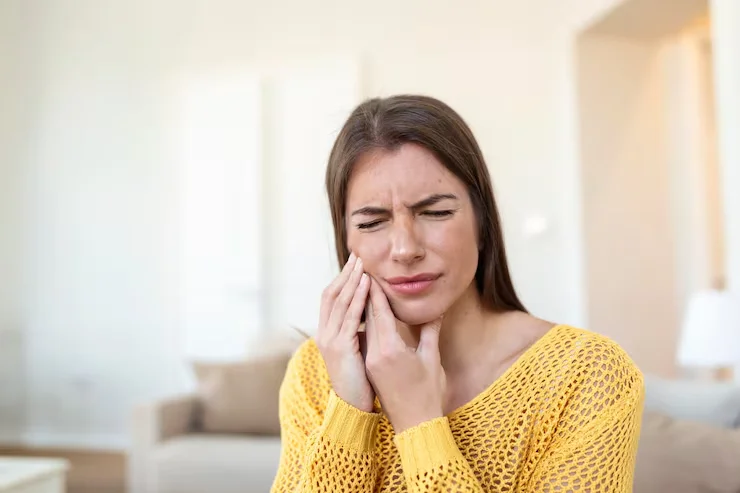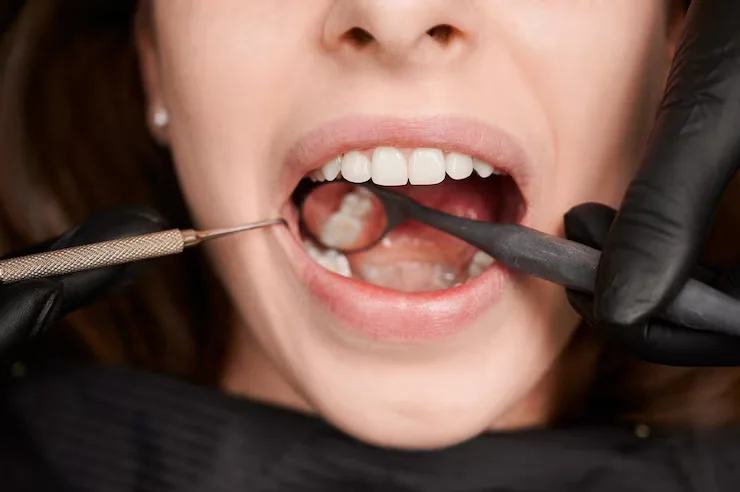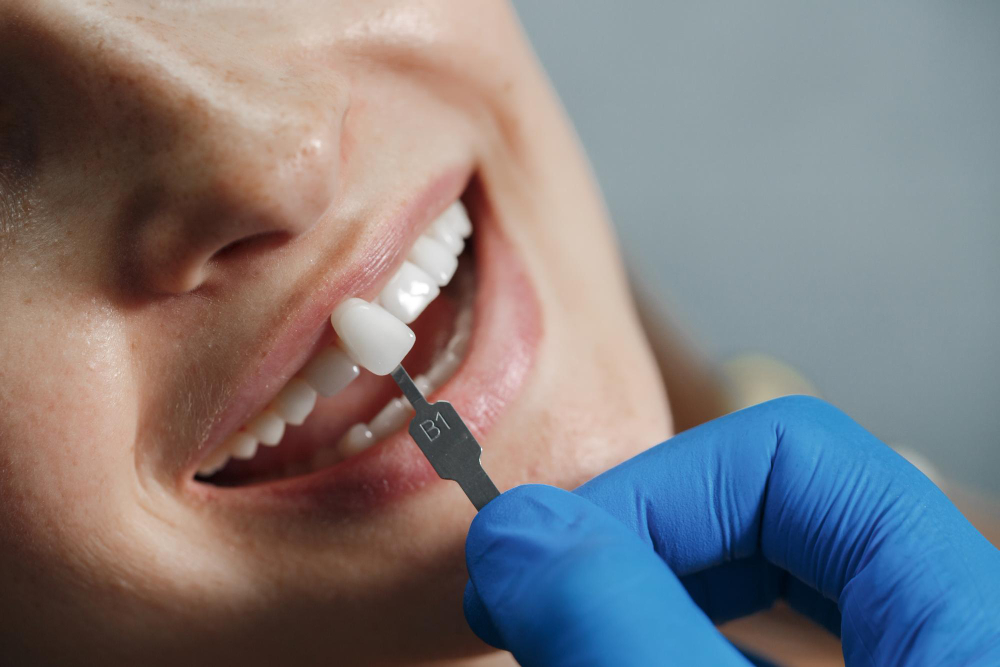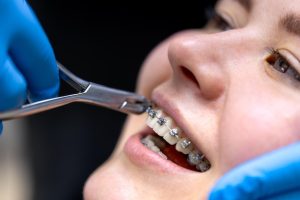We all understand how important it is to look after our health, but sometimes we forget about preventive care – especially for our teeth. Do you also find yourself nervous about going to the dentist? Maybe you avoid it altogether and only go when there’s a problem with your teeth or gums?
Well, you’ll be surprised to know that regular dental checkups can bring many more health benefits than just providing a bright smile. They can help lower inflammation in your body and even prevent serious illnesses like heart disease and dementia.
Here’s why booking an appointment with your dental expert twice a year might be more crucial than you thought.
What to Expect During a Dental Visit?

A dental visit usually has two main parts. First, the dentist will check your whole mouth, including your teeth, gums, and tongue, to ensure everything’s okay. They might take X-rays to see what’s happening inside your mouth.
Afterward, they’ll clean your teeth using tools like scrapers and small mirrors to remove plaque or tartar buildup. Then, if needed, they might plan future fillings or root canal appointments.
Health Benefits of Regular Dental Checkups

Taking good care of your teeth has many health benefits. It helps prevent cavities and keeps your heart healthy, too. That’s why everyone needs to make regular dental checkups a part of their healthcare routine.
Let us look at a few of the major health benefits it provides
1. Reduces the Risk of Heart Disease
Research shows that dental cleaning can reduce your heart attack or stroke risk. Gum inflammation is linked to these dangers, and cleaning your teeth regularly helps lower the bacteria that cause it. This makes your blood vessels work better all over your body. Inflammation is linked to many diseases, especially heart issues.
2. Help Detect Oral Cancer
Oral cancers are a significant health danger. But if you visit your dentist regularly, they can spot oral cancer early, which could save your life. Signs of oral cancer include sores that don’t heal quickly, abnormal bleeding, or white patches on your gums.
During your checkups, the dentist will examine your gums and tissues to ensure they’re healthy and check for any signs of cancer that might need further testing.
3. Treat and Prevent Gingivitis
Gingivitis is a gum disease that can cause severe problems in the mouth. If it gets worse, it can turn into periodontal disease. This is when tartar builds on and under the gums, causing inflammation.
We now know how inflammation can affect your overall health. Your dentist can teach you about this and help prevent it.
4. Prevent Tooth Loss
Cleaning your teeth regularly can stop gum disease, possibly making you lose teeth. Gum disease can harm your gums and the bone that keeps your teeth in place. Tooth decay can also lead to tooth loss. Losing permanent teeth can cause your other teeth to move, which is terrible for your mouth’s health.
5. Early Spotting and Treating of Cavaties
Cavities can cause more than just pain; if left untreated, they can also harm your health. They may lead to severe infections that need treatment because they could spread to your bloodstream. This could result in a dangerous disease called septicemia, which is caused by bacteria in the blood. It can start from infections in your mouth or anywhere else in your body.
6. Dental X-rays Help Find Oral Problems Early
Dental X-rays help your dentist find problems with your teeth and gums that can’t be seen on the surface. They can reveal things like decay in your jawbone, tumors, tooth decay, teeth stuck in the wrong place, and other mouth problems. X-rays are essential because they help your dentist catch these issues early before they get worse and cause more harm.
7. Reduces Inflammation
Health professionals have explained that inflammation can make you more prone to aging and sickness. Many chronic health problems start with inflammation throughout the body.
If you want to live a longer, healthier, and happier life (who wouldn’t?), it’s crucial to reduce inflammation as much as possible. Since inflammation is also a concern in the mouth, taking good care of your teeth and having regular dental check-ups are crucial for staying healthy and living longer.
What are the Consequences of Skipping Dental Checkups?

Skipping dental check-ups might seem harmless, but it can seriously affect your oral health. Regular visits help prevent or catch dental problems early. Without them, you’re more likely to get tooth decay and gum disease, leading to severe issues like losing teeth. Plus, dentists can spot early signs of oral cancer, which is easier to treat if found early.
Neglecting dental care can also affect your overall health, increasing your risks of heart disease, diabetes, infections, and pregnancy complications. So, don’t skip your dental check-ups—they’re vital for keeping you healthy from head to toe!
When Should You Visit the Dentist Between Regular Cleanings and Checkups?

Sometimes, you might ignore a little tooth pain and hope it gets better by itself. But getting dental issues checked early is crucial, just like regular dental checkups. If you feel pain or see bleeding in your teeth or gums when you eat, drink, brush, or floss, it’s time to see a dentist.
Look out for other signs like—
- Swollen or discolored gums
- A lump, numbness, or swelling in your cheek, jaw, tongue, lips, or other parts of your mouth
- Loose teeth
- Bad breath or a bad taste in your mouth that doesn’t go away
- Headaches, especially worse in the morning when you wake up.
How Often Should I Go to the Dentist?
You might wonder if visiting the dentist every six months is necessary. Well, the answer depends on your situation. Generally, a dental checkup is suggested every six to twelve months.
However, your dentist will examine your teeth and gums to determine the best treatment plan. They’ll create a personalized treatment schedule that works just right for you.
Tips for Keeping Your Teeth Healthy with Food and Oral Hygiene

Regular visits to the dentist are essential to keeping teeth healthy, but what you eat and drink also affects your teeth.
Here are some simple tips to help—
- Stay away from sugary and acidic foods. Sugar can cause teeth to decay, and acid can wear away the enamel.
- Try not to have too much caffeine. Drinks like coffee, tea, and soda can stain your teeth.
- If you smoke, try to quit. Smoking can cause gum disease and other mouth problems.
- Remember to brush twice a day and floss every day. Brushing removes plaque on your teeth, while flossing removes food bits and bacteria that cause decay and gum problems.
- Remember to visit your dentist regularly for checkups and cleanings. Professional cleanings remove tartar that brushing alone cannot.
Ready to Enjoy the Benefits of Regular Dental Checkups? Visit Hopkins Family Dentistry Today!
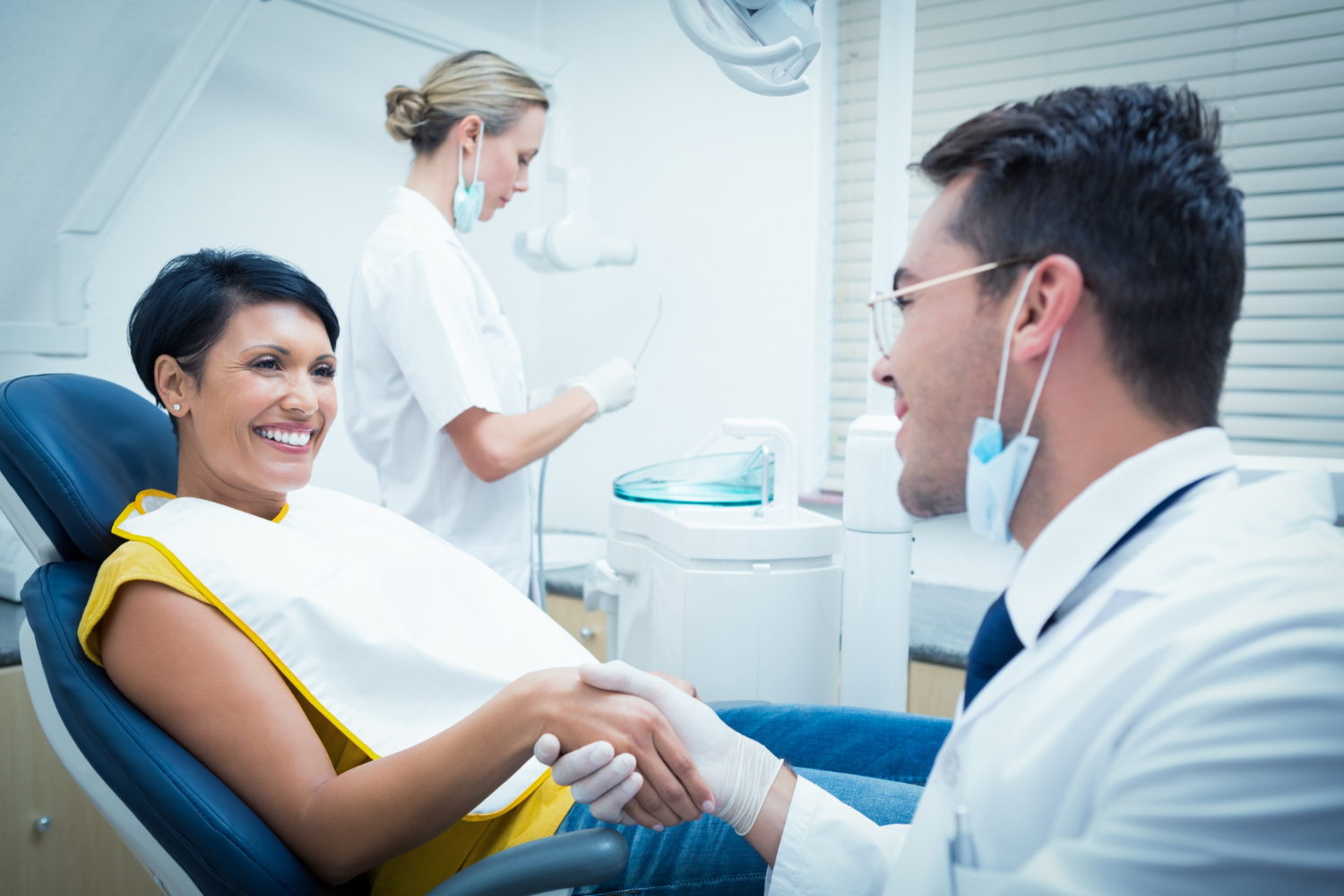
Regular visits to the dentist are super important for keeping your mouth and body healthy. They stop tooth decay, gum problems, and even cancer in your mouth. Plus, they save you from painful toothaches and expensive dental bills.
We understand that visiting the dentist can be frightening for some, but at Hopkins Family Dentistry, our dentists are skilled at identifying and addressing issues early and ensuring your comfort throughout the process.
So, Why wait? Book an appointment with us today!
FAQs
1. Why is it important to have regular dental checkups?
Regular dental checkups are important because they keep your teeth clean, which helps prevent tooth decay, gum disease, and other mouth issues. They also help catch problems early, making them easier to treat.
2. How frequently should I schedule regular checkups with my dentist?
You should schedule regular checkups with your dentist once every six months.
3. Does a teeth cleaning hurt?
Teeth cleanings usually don’t hurt. You might feel pressure while they clean your teeth, but it’s not usually painful. If your teeth are sensitive, tell your dentist so they can be careful.
4. Do I need to do anything special before teeth cleaning?
No special preparation is needed for most cleanings. Just brush and floss your teeth like usual before your appointment. If you have any worries, talk to your dentist before cleaning starts.
